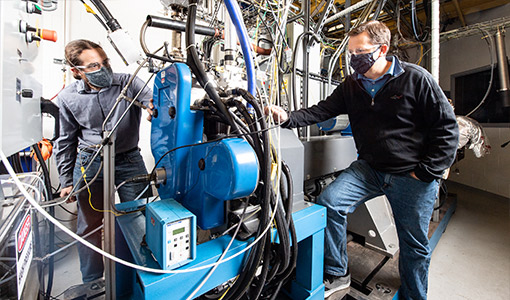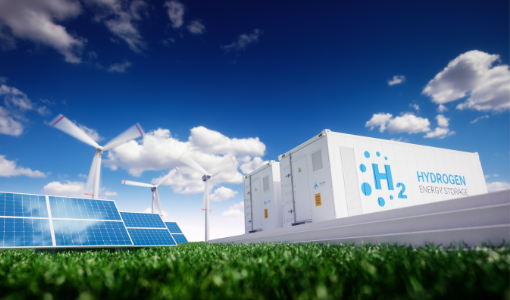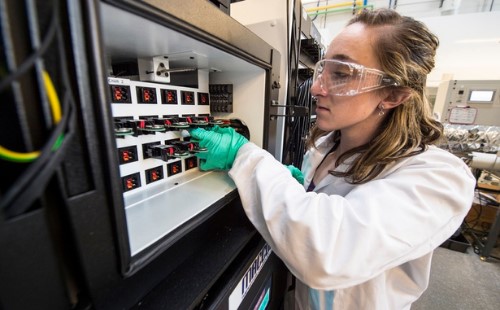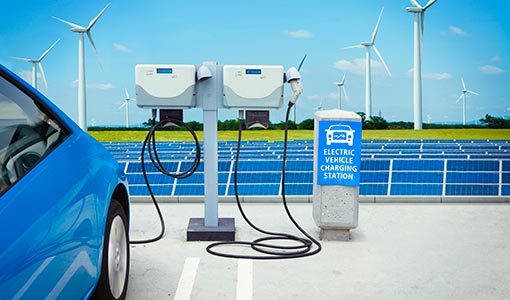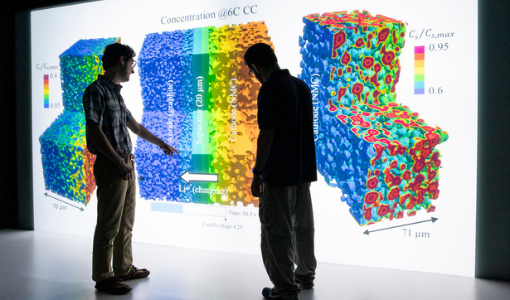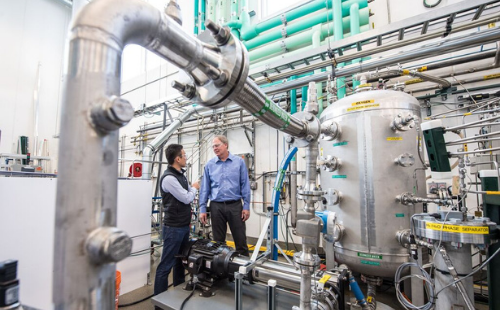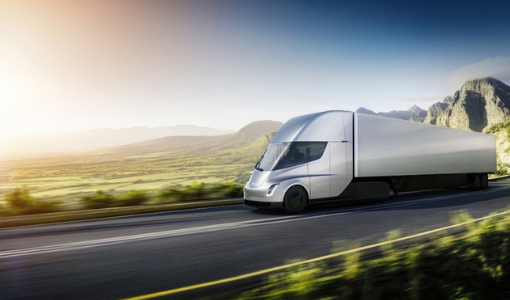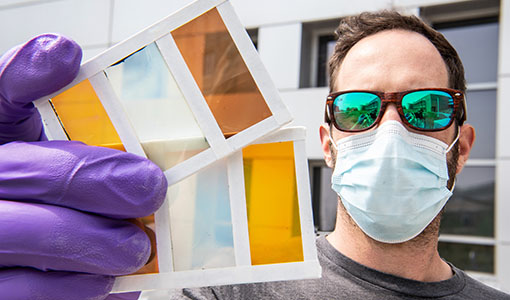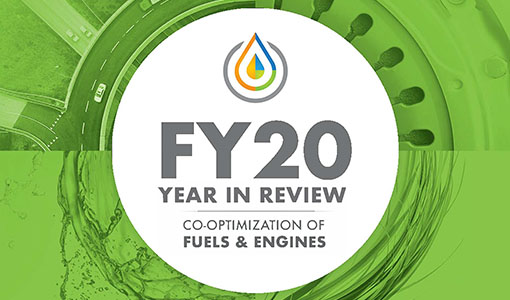Explore our collection of new stories for this topic.
Search or filter for a specific story using the options below.
August 2021
Big Emissions Cuts and Efficiency Gains for Big Rigs
A new report from the DOE Co-Optimization of Fuels & Engines (Co-Optima) initiative identifies potential big gains for big rigs and the environment by creating low-carbon renewable diesel fuel blends for use in truck engines.
July 2021
New Financial Analysis Tool for Long-Duration Energy Storage In Deeply Decarbonized Grids
Researchers at NREL have developed a rigorous new Storage Financial Analysis Scenario Tool (StoreFAST) model to evaluate the levelized cost of energy (LCOE), also known as the levelized cost of storage (LCOS).
Celebrating NREL Women Advancing Energy Storage
This year, NREL joined the Department of Energy's Energy Storage Grand Challenge (ESGC) in celebrating just a few of the women making significant contributions within energy storage programs.
Charging Infrastructure Analysis Aims To Help California Meet Zero-Emission Vehicle Goals
Leveraging its data science expertise and state-of-the-art modeling and analysis tools, NREL is helping the California Energy Commission pinpoint the number of electric vehicle chargers needed to meet the state’s ambitious zero-emission vehicle and greenhouse gas reduction goals.
Microstructure Analysis ToolBox Changes the Game for Heterogeneous Material Modeling
Microstructure-scale modeling carried out by NREL over the past five years has culminated in the newly released Microstructure Analysis ToolBox (MATBOX) dedicated to the meshing, numerical generation, segmentation, and characterization of three-dimensional heterogeneous materials, such as battery electrodes.
DOE Recognizes Multiple NREL Hydrogen Researchers at 2021 Annual Merit Review Awards
The U.S. Department of Energy Hydrogen Program recently honored nine National Renewable Energy Laboratory researchers for their outstanding achievements at the 2021 Annual Merit Review and Peer Evaluation Meeting.
June 2021
Researchers Identify Near-Term Opportunity for Heavy-Duty Electric Trucks
Researchers recently studied a promising opportunity for near-term electrification within this segment through depot charging.
NREL Inventiveness Sets New Record for Patent Activity
NREL was granted 40 U.S. patents during fiscal 2020, a bump from the 32 issued during the prior fiscal year.
May 2021
New Combustion Strategies Plus Biofuels Add Up to Cleaner, More Efficient Cars and Trucks
A report released this month highlights the most significant breakthroughs of the last year in the U.S. Department of Energy's Co-Optimization of Fuels & Engines (Co-Optima) initiative, with details on findings that could translate into significant greenhouse gas and tailpipe emissions reductions.
News Release: Environmental Concerns Propel Research Into Marine Biofuels
A global effort to reduce sulfur and greenhouse gas (GHG) emissions from ships has researchers from NREL and other Department of Energy facilities investigating the potential use of marine biofuels.
Share
Last Updated May 5, 2025

